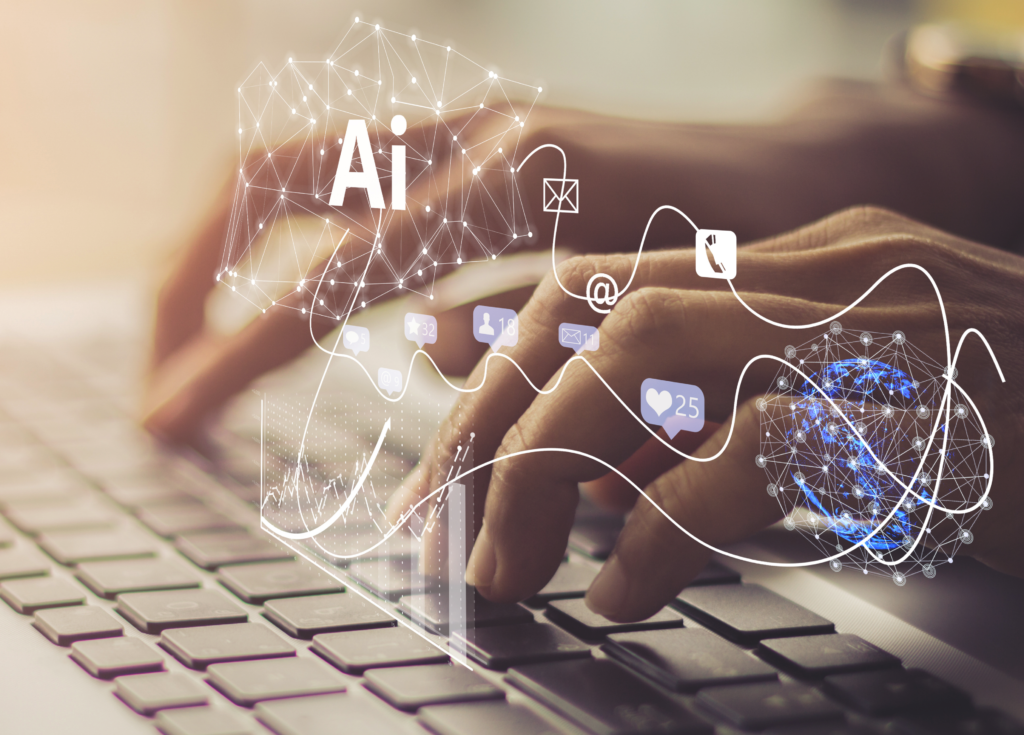By University of Groningen
Introduction and Overview of the INFINITE Project
Artificial Intelligence (AI) is reshaping Higher Education (HE) by changing how we teach, learn, and manage academic environments. The INFINITE project prepares faculty and students to use AI ethically and effectively. As AI becomes more common across sectors, the project highlights the need to integrate AI tools with teaching methods to improve educational outcomes while considering ethical and practical issues.
During the first months of the project, INFINITE partners carried out a research phase to investigate the current status of the use of AI in HE across Europe through a desk research, scientific literature review and survey to HE academics and students. The University of Groningen was at the forefront of studying AI’s impact in HE in two selected countries: the Netherlands and Spain. This article shares key insights into AI’s potential and challenges, providing useful information for educators, students, and policymakers.
The AI landscape in Higher Education in the Netherlands and Spain
Our research has identified several important applications of AI in higher education:
– Educational Management: AI tools like chatbots and management systems are streamlining administrative tasks and offering real-time support to students and faculty, improving the management of educational programs.
– Personalized Learning: Intelligent Tutoring Systems (ITS) and AI-driven analytics are tailoring learning materials to individual needs, enhancing student engagement and outcomes.
– Support for Educators: AI is helping teachers by moderating online discussions and identifying students who need extra support, allowing teachers to focus on teaching.
However, there are also risks associated with AI in education:
– Privacy Concerns: AI requires access to large amounts of data, including sensitive personal information, posing risks to privacy.
– Bias and Inequality: AI systems can unintentionally perpetuate existing biases, potentially leading to unequal educational opportunities.
– Human Element: Over-reliance on AI might reduce the essential human aspects of teaching, impacting education quality and teacher-student relationships.
Impact of AI on Teaching and Learning
AI affects teaching and learning in several ways:
– Enhancements in Education: AI can improve learning efficiency and personalization. It supports innovative teaching methods and accurate assessments, aligning education with future needs.
– Challenges: The focus on standardized assessments and the potential disruption to traditional teaching methods require careful integration of AI to ensure it supports rather than replaces human teachers.
Conclusion
The findings from the University of Groningen, supported by observations within the scientific community, highlight the significant benefits that AI can bring to education, particularly in enhancing efficiency and personalization. These advantages, however, come with complexities that necessitate vigilant management to tackle issues related to ethics, privacy, and educational equity. As AI tools become increasingly integrated into educational environments, the importance of critical thinking cannot be overstated. Both educators and students must develop the ability to critically evaluate these technologies, discerning their limitations and potential biases to prevent an over-reliance that could diminish the human element essential to education.
In response to these challenges, institutions must prioritize the integration of critical thinking into their curricula, placing it on equal footing with digital literacy. This strategic emphasis will prepare students and educators not only to use AI effectively but also to question and understand its role within educational contexts. Ongoing dialogues among all educational stakeholders —students, educators, policymakers, and technology developers— are crucial to responsibly leveraging AI’s benefits. Such conversations will ensure that AI supports and enhances educational outcomes while steadfastly upholding the integrity and values of educational institutions.

